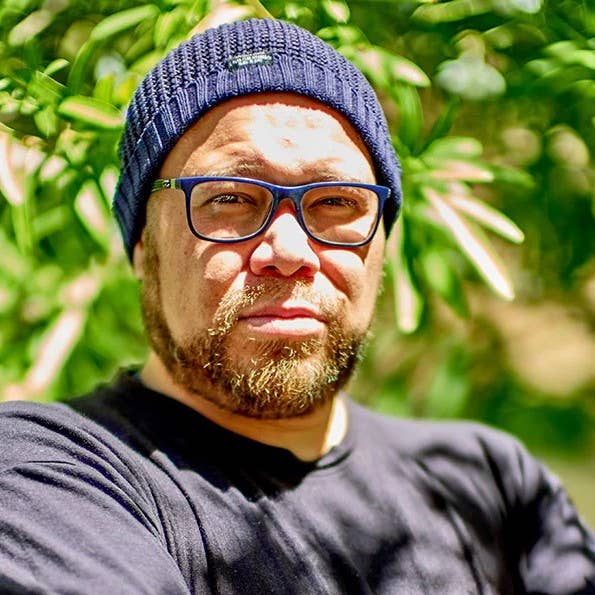Shawn Layden: Consolidation is the enemy of diversity
The former PlayStation exec and Streamline Media Group discuss gaming's 'third epoch'
At Gamelab last year, Shawn Layden grabbed headlines for calling out the spiralling costs of game development.
Although much was made of his suggestion that games should be smaller (or more expensive), his concerns are rooted in the reality that for all the revenue growth seen in the console space, audience growth remains elusive. The number of people who own consoles today is broadly the same as it was in the late 1990s, around 240 to 260 million people.
"We're just getting people in the gaming world to spend more money," Layden tells us in an interview following his appointment to Streamline Media Group's advisory board.
He continues: "With each console generation, the cost of games goes up 2x. So PS4 games were $100 to $150m, so it stands to reason that PS5 games -- when they hit their stride -- will be in excess of $200m. It's going to be very difficult for more than a handful of large players to compete in that space.

"During that time we have also seen more consolidation. Consolidation is the enemy of diversity in some ways. It takes a lot of playing pieces off the table as they grow into these larger conglomerates. And again, we end up with this problem with diversity.
"Music on a revenue basis is probably one fifth of the games space. But their cultural impact is 100x what gaming is. Right now, we are narrowing ourselves down into genres and sequels and certain types of games. Favourites like my own, like Parappa and Vib-Ribbon, those things don't seem to get a chance to come out on stage. That's bad for the industry and for fans. Over time, that leads to a crumbling of the games industry if we just keep talking to the same people and telling the same stories in the same way.
"I was interested in Streamline because it has spent almost the entire of its 20 years with a remote distributed development model. They speak 27 different languages throughout their studios and have people from 47 different countries. It is an incredibly multi-cultural workforce, and that is where the future of breaking gaming into a wider audience beyond the 240 to 260 million.
"Music on a revenue basis is probably one fifth of the games space. But their cultural impact is 100x what gaming is"
Shawn Layden
"Of course, if you add in mobile phones you get to hundreds of millions of players. But those are related but distinct categories. We've learned over time that mobile gaming isn't necessarily a gateway into console, but just a different thing for people to do at a different time of the day.
"So this industry is ripe for disruption, and some of us better get on that."
It seems to Layden that this is more than just making sure the games industry grows financially. Shortly after his Gamelab talk, certain games publishers raised the price of their video games for the first time in two generations. But this doesn't solve the problem, Layden explains.
"But even that, it doesn't match the rate of inflation over the last 20 years. It helps, but not enough. And not enough to open up doors for new talent to come in. Again, the entrenched players are holding on to their market and trying to extract a little bit more value out of it. It doesn't solve the problem."
It's these big opportunities and challenges that has drawn Layden to Streamline Media. The group is part-developer, part-services business, offering art, code, QA and localisation and technology to other studios, whilst also creating its own games.
But it believes the future for the video games industry is beyond entertainment. Last year, the company teamed up with fashion brand Balenciaga to create a virtual experience to demonstrate its Fall 2021 line-up. Steamline CEO Alexander Fernandez says this highlights how non-games businesses are realising the power of video games and its technology in a post-pandemic world.
"It's important to remember that what we do as an industry is a suspension of disbelief that is layered in a technology, design and creativity," he tells us. "But it is also applicable in building communities and scaling up opportunities for other industries that absolutely need to learn from games. We've been able to successfully grow massive communities that are loyal to whatever we're telling. Those other industries are coming in and saying they want to learn how to do this, and leverage that stuff, create that stickiness and that engagement level, which will be necessary for the transformation of their own industries.

"That digital transformation that is taking place in many industries around the world, that runs straight to the heart of video games. We just need to realise that business, and that is something that will grow the reach of our industry, but also the possibility of job creation, talent creation and career growth."
It's not all about brands using games to sell more clothing, either.
"The other part of it is going on in educational. You can learn about Egypt through a game. Like with Assassin's Creed. But also looking at simulations and training. What is a flight simulator except a very expensive video game? Or it's surgeon training from LevelX. The FDA just approved the first game for ADHD. Think about it, gaming for ADHD certified therapeutic, literally from a pharmaceutical company and a video games company.
"So when I talk about metaverse, I'm talking about us realising that we have this tech, and this understanding that really is the melding of art, science, psychology, design... what if we applied this to all the different problems that we have as society, our businesses can literally touch all of humanity."
"Web 3.0 is a video game. So ultimately our industry needs to steer ourselves towards that."
Alexander Fernandez, Streamline
He continues: "It's no wonder Zuckerberg says Facebook is going to become a metaverse company. He's not saying that because he's crazy, he's saying that because he understands that's where all the eyeballs is going. That's web 3.0. Web 3.0 is a video game. So ultimately our industry needs to steer ourselves towards that."
It's here that Fernandez hopes to find the talent of the future. He says that many AAA studios are simply looking for mid- to senior-level people and isn't doing enough to skill-up the talent of tomorrow. But by going beyond entertainment, it offers new opportunities for people to come in and grow, without having to fight their way onto a risky high-end AAA game.

Fernandez and Layden are talking specifically about the AAA console market. But what about the indie scene? These developers aren't spending years and years making $150 million sequels. There are diverse indies making unique products and offering a way into the industry that doesn't require working at Naughty Dog or Rockstar.
Fernandez says that indie can be a way in, although there must be a commitment to upscaling staff and growing. Whereas Layden feels the indie space faces unique threats.
"The independent developer is the constant chase for funding. That's so all-consuming. It's become even harder now. On the one hand, the overall budgets for games are no longer in the $15,000 range. They require some serious capital. And the indies are going out there looking for that funding, and the ones who have real promise are just being bought out and sucked into a larger vortex filled with studios sitting under a larger hat.
"Or they're being told things like: 'why don't you start a GoFundMe, and you can get a certain amount of money, and then come back and we'll look again'. The leverage is so disproportionately in the publishing side of the business, that the creative side doesn't have the chance to move its vision forward without coming into some form of financial agreement, or trying to do something underfunded and working like crazy to then be told 'we're not interested'. And then the whole thing just crashes and burns.
"[Consolidation] takes the variety out of the marketplace. That's my fear. And over time, that is going to make the industry moribund
Shawn Layden
"So how do we create an entry way for bona fide talent, interesting people, who wish to break into interactive entertainment, but don't have the ability to surmount that giant financial hurdle? And it's getting higher and higher all the time. And the creator's ability to influence that outcome is becoming weaker and weaker."
This goes back to what Layden was saying about the consolidation in the games industry being the enemy of diversity. Considering the high number of mergers and acquisitions, is he concerned about where this activity takes the business?
"Consolidation, from a bank ledger side of the calculation, makes sense," Layden acknowledges. "Grab up all the resources so the other guy doesn't get it and put them to task on the thing that you want to have done. But it takes the variety out of the marketplace. That's my fear. And over time, that is going to make the industry moribund, and it's going to create a world of sameness.
"For us to grow the audience for gaming, we have to go where they are. We've been here 25 years, they know where we are, and they haven't come yet. And there's a reason. We need to discover and interrogate that reason.
"Why is this something you don't want to spend your time doing? Is it the fact the controller is this piece of plastic with 23 buttons on it and you're just intimidated by the look of it? Or is it the context of the games we have? Is it just not appealing to other people? When you lose the variety, you lose the ability to go to where people are and to engage them. And then you're in your closed cathedral that will ultimately collapse in on itself."
Layden comments on the size of the console market reflect that of Xbox boss Phil Spencer, who believes things like [subscription service] Game Pass and [streaming technology] xCloud will enable the console games industry to go beyond that 250 million number. But Layden is sceptical.
"People don't buy consoles because they want more steel and plastic in the living room. People buy consoles because they want access to the content. If you can find a way to get the content into people's homes without a box, then yes, indeed. Everyone has a streaming solution of some form. Most of it is limited by whether you have a decent internet connection. And they haven't constructed the business model that works yet for that.
"It's very hard to launch a $120m game on a subscription service charging $9.99 a month. You pencil it out, you're going to have to have 500 million subscribers before you start to recoup your investment. That's why right now you need to take a loss-leading position to try to grow that base. But still, if you have only 250 million consoles out there, you're not going to get to half a billion subscribers. So how do you circle that square? Nobody has figured that out yet."
So what is the answer? It comes back to diversity.
"Gaming is reaching the end of its second epoch, which was the last 25 to 30 years of consoles everywhere," Layden concludes.
"What is that third epoch? Who is going to make the definitions around that? Who is going to lead this thing? Our industry as a whole has to get in front of that. I'm sure there are concerns about who sold more boxes last week and all that, and companies need to look at that because they're businesses. But those of us who can chart the course for that third epoch, I think that's an exciting thing to be part of.
"But going forward, you're going to see a lot of stuff coming out of Streamline in the games space, but also in this enterprise space. It's also looking at ways of how we can help on-ramp new creatives and people who think that gaming is not for them. Or wish to be here but can't be here. We need to open up those opportunities. It is super important."

